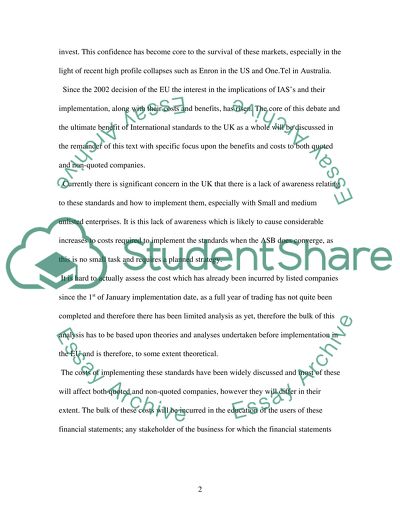Cite this document
(International Accounting Standards - Implementation for the UK Small a Term Paper, n.d.)
International Accounting Standards - Implementation for the UK Small a Term Paper. Retrieved from https://studentshare.org/finance-accounting/1519631-implementing-international-accounting-standards
International Accounting Standards - Implementation for the UK Small a Term Paper. Retrieved from https://studentshare.org/finance-accounting/1519631-implementing-international-accounting-standards
(International Accounting Standards - Implementation for the UK Small a Term Paper)
International Accounting Standards - Implementation for the UK Small a Term Paper. https://studentshare.org/finance-accounting/1519631-implementing-international-accounting-standards.
International Accounting Standards - Implementation for the UK Small a Term Paper. https://studentshare.org/finance-accounting/1519631-implementing-international-accounting-standards.
“International Accounting Standards - Implementation for the UK Small a Term Paper”, n.d. https://studentshare.org/finance-accounting/1519631-implementing-international-accounting-standards.


